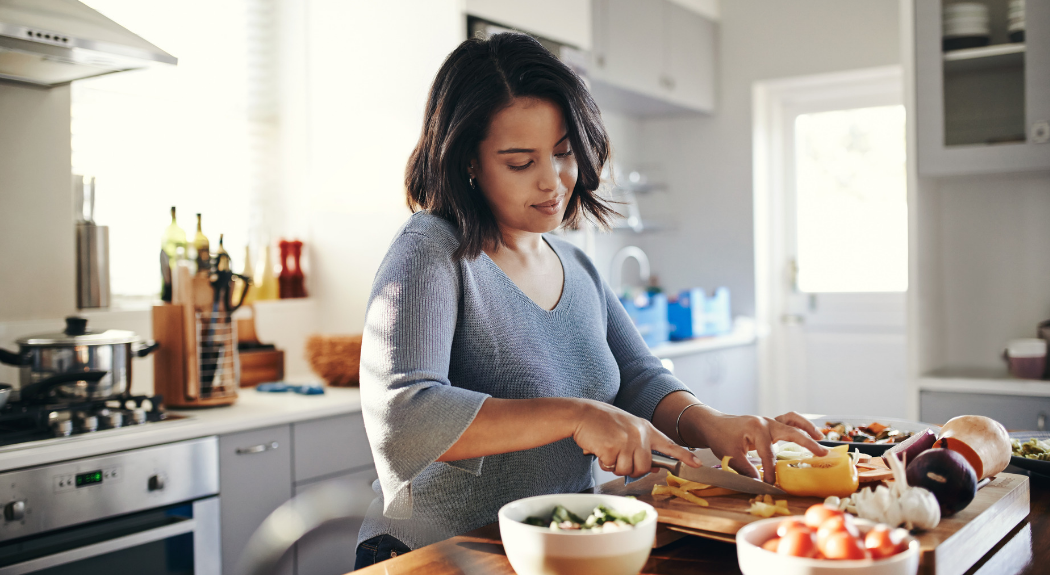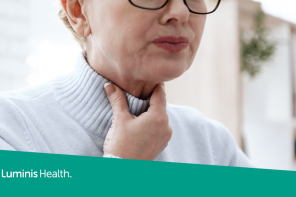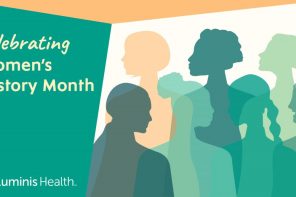If you have or have had breast cancer, you may want to know if there are things you can do that may lower your risk of the cancer growing or coming back. Diet is thought to be partly responsible for about 35-40 percent of cancers. No specific food or diet can prevent you from getting breast cancer, but striving to get your body the healthiest it can be to improve your immune system may help keep your risk as low as possible.
Breast cancer is less common in countries where the typical diet is plant-based and low in total fat. Breast cancer is one of the best-studied cancers and research has shown us a few things we can do that might be helpful. One thing is clear: fat is a major source of calories. High fat intake can lead to being overweight or obese, which is a breast cancer risk factor. Overweight women may be at higher risk for breast cancer because the extra fat cells make estrogen, which can cause extra breast cell growth. Here are some steps you can take to lower the risk of breast cancer:
- Eat plenty of fruits and vegetables. Freeze grapes and berries for a snack. Buy a new fruit or vegetable every time you go to the grocery store. Add squash, onions, mushrooms and carrots to jarred or fresh spaghetti sauce. Eat whole fruit instead of juices or smoothies for a fiber boost. Make all snacks fruits and vegetables and elevate these with marinades, seasonings or cold vegetable slaws.
- Limit your fat intake. Use less salad dressing or substitute with flavored vinegars or chutneys. Cook with bouillon, broth or stock to enhance flavors. Avoid processed meats and cold cuts as these are high in salt, fat and preservatives. Eliminate foods with the highest fat content. Aim for 3 grams of fat or less per 100 calories when label reading. Choose lean cuts of meat and remove skins.
- Mix up your protein options. Try fish, chicken or lamb instead of beef and pork. Have and omelet for dinner with beans and vegetables. Use lentils or beans as your main dish such as vegetarian chili, bean burgers or a hearty soup.
- Add healthy choices to your diet. Bake, broil or grill your food to decrease the amount of calories in your food versus frying. Choose nonfat milk and dairy products and yogurts. Choose smaller portions with a total of 6 ounces of cooked meat per day. Fill in the remaining plates with vegetable and fruits. Eat more fiber to feel full for longer and to lower cholesterol and blood sugar levels. Put beans into salads, soups and casseroles. Toss vegetables with pasta sauce.
- Be physically active. Among breast cancer survivors, studies have found a consistent link between physical activity and a lower risk of breast cancer recurrence and death. Research has also linked physical activity to improvements in quality of life, physical functioning and less fatigue.
- Limit or avoid alcohol. Alcohol can increase levels of estrogen and other hormones associated with hormone receptor-positive breast cancer. It also may increase breast cancer risk by damaging DNA in cells. Compared to women who don’t drink at all, women who have three alcoholic drinks per week have a 15 percent higher risk of breast cancer.
- Consider buying organic. There is a real concern that chemicals used to grow food may cause health problems, including an increase in breast cancer risk. To reduce your exposure to pesticides, you may want to buy organically grown food, particularly fruits and vegetables.
 Ann Caldwell and Maureen Shackelford are nutritionists and registered dietitians at Anne Arundel Medical Center. To reach them, call 443-481-5555.
Ann Caldwell and Maureen Shackelford are nutritionists and registered dietitians at Anne Arundel Medical Center. To reach them, call 443-481-5555.




